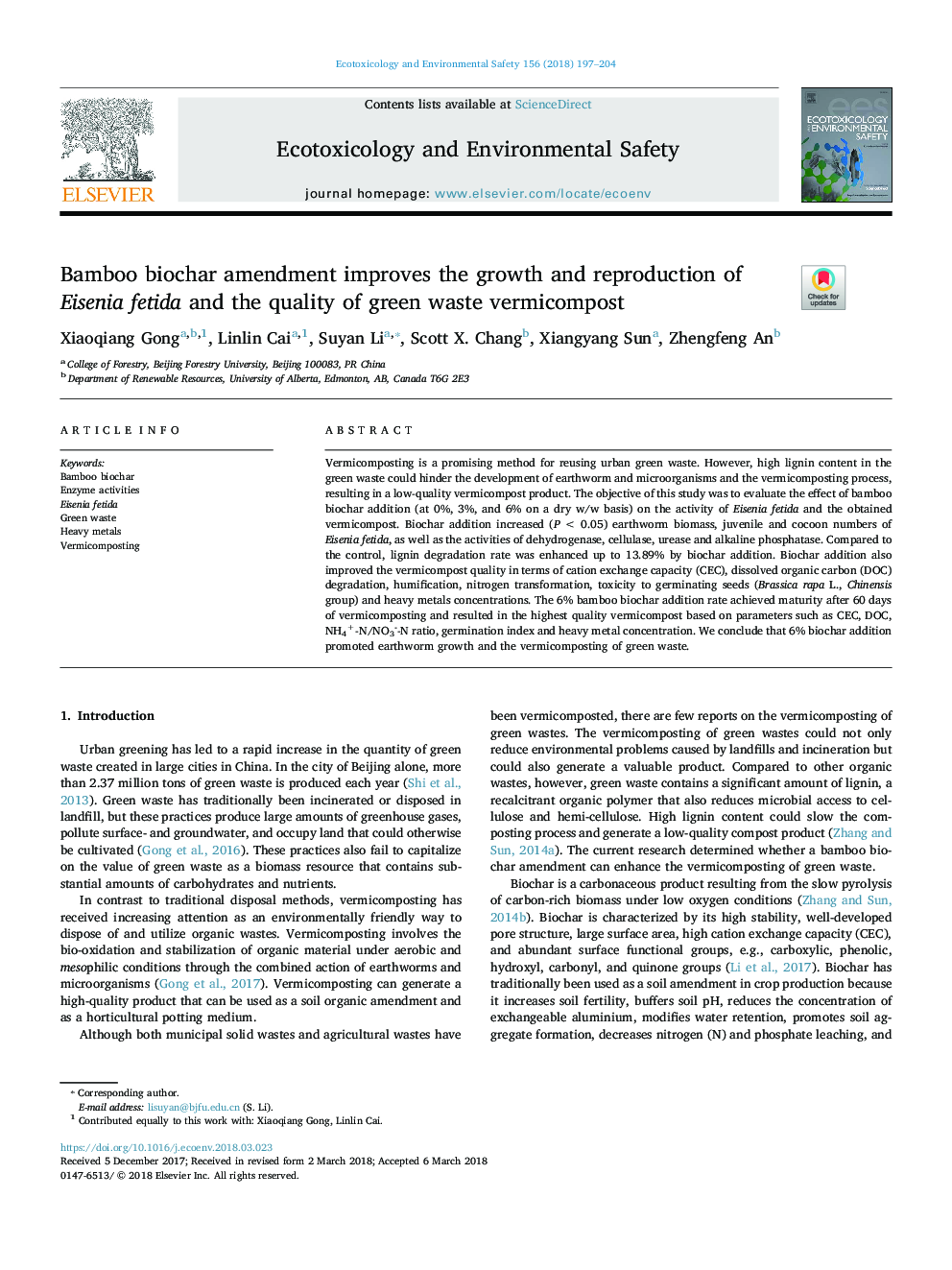| Article ID | Journal | Published Year | Pages | File Type |
|---|---|---|---|---|
| 8854138 | Ecotoxicology and Environmental Safety | 2018 | 8 Pages |
Abstract
Vermicomposting is a promising method for reusing urban green waste. However, high lignin content in the green waste could hinder the development of earthworm and microorganisms and the vermicomposting process, resulting in a low-quality vermicompost product. The objective of this study was to evaluate the effect of bamboo biochar addition (at 0%, 3%, and 6% on a dry w/w basis) on the activity of Eisenia fetida and the obtained vermicompost. Biochar addition increased (Pâ¯<â¯0.05) earthworm biomass, juvenile and cocoon numbers of Eisenia fetida, as well as the activities of dehydrogenase, cellulase, urease and alkaline phosphatase. Compared to the control, lignin degradation rate was enhanced up to 13.89% by biochar addition. Biochar addition also improved the vermicompost quality in terms of cation exchange capacity (CEC), dissolved organic carbon (DOC) degradation, humification, nitrogen transformation, toxicity to germinating seeds (Brassica rapa L., Chinensis group) and heavy metals concentrations. The 6% bamboo biochar addition rate achieved maturity after 60 days of vermicomposting and resulted in the highest quality vermicompost based on parameters such as CEC, DOC, NH4+-N/NO3--N ratio, germination index and heavy metal concentration. We conclude that 6% biochar addition promoted earthworm growth and the vermicomposting of green waste.
Related Topics
Life Sciences
Environmental Science
Environmental Chemistry
Authors
Xiaoqiang Gong, Linlin Cai, Suyan Li, Scott X. Chang, Xiangyang Sun, Zhengfeng An,
